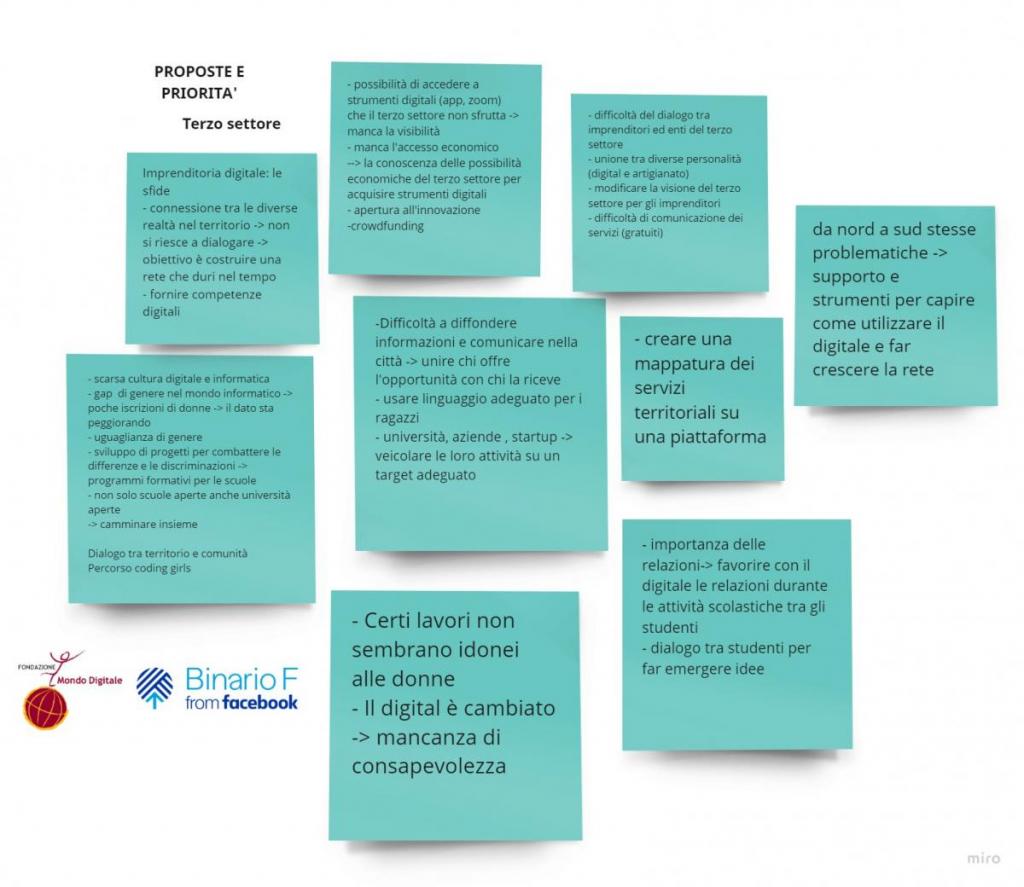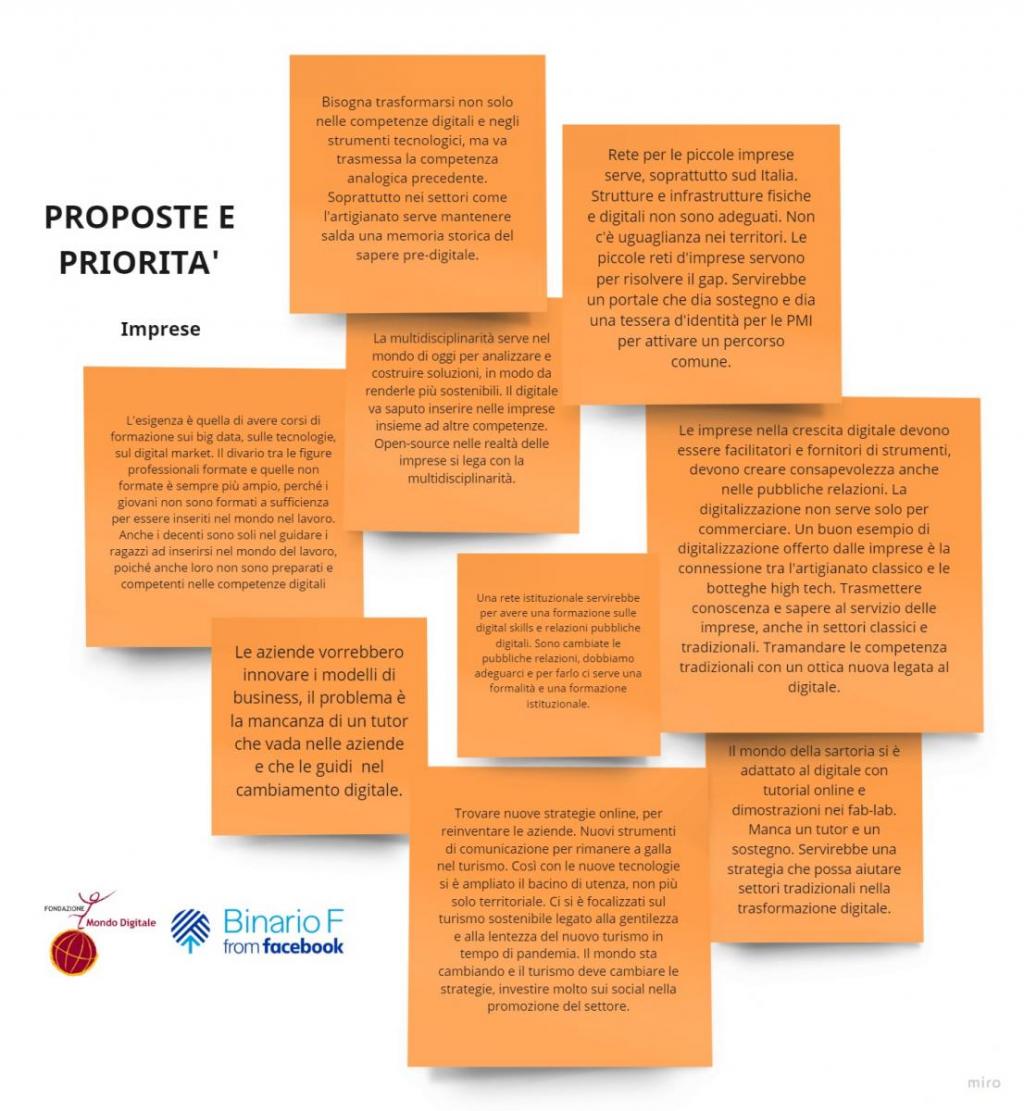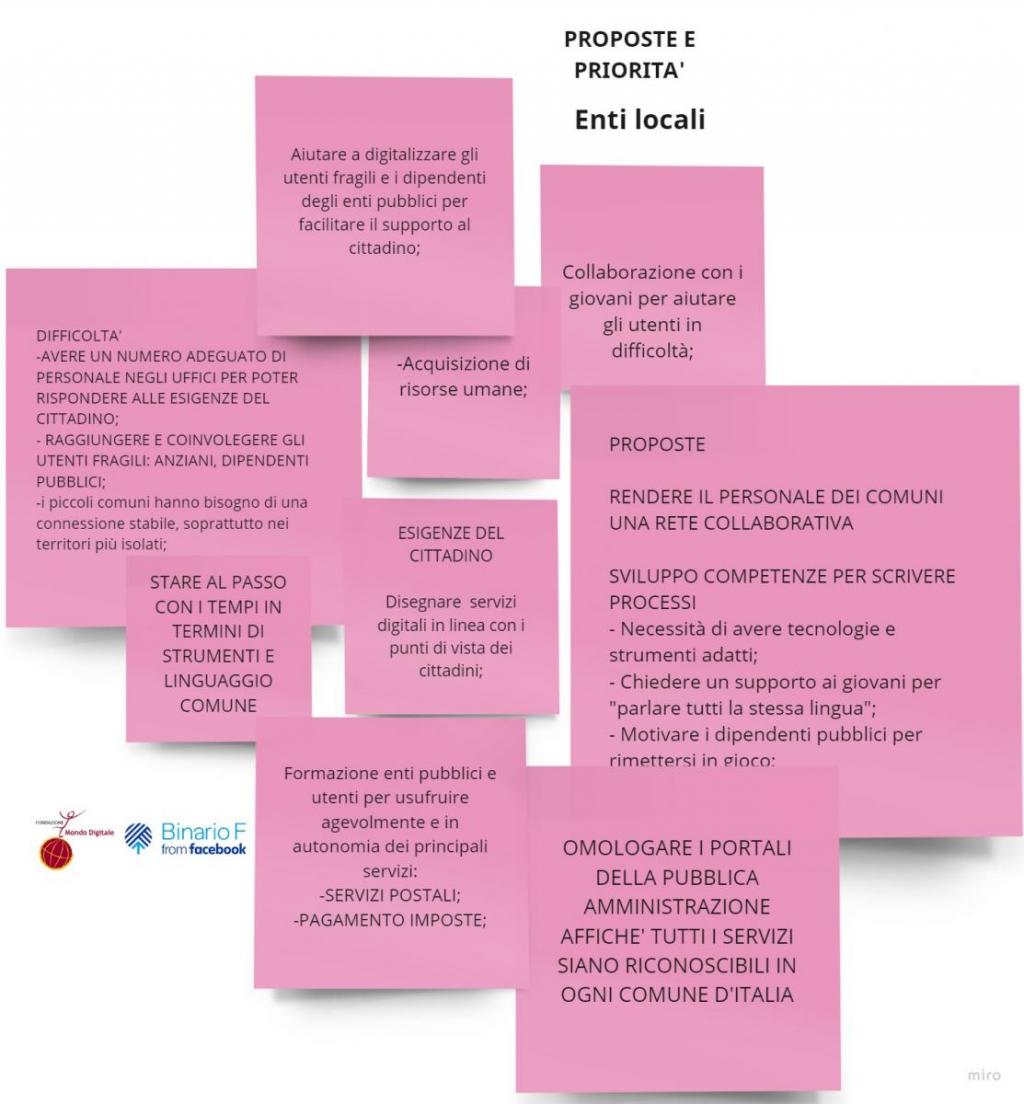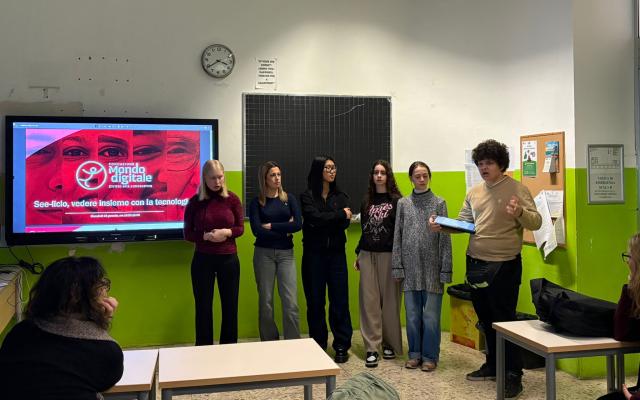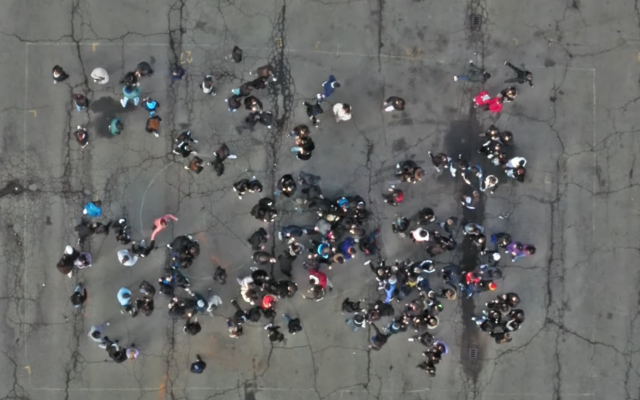Binario F promotes an inclusive community of digital practice, a widespread learning environment and a new method of working to identify new solutions.
Today, Facebook and Fondazione Mondo Digitale presented the new Vagone FMD. From 01 to 100 Programme that focuses on collaborative networks, hybrid alliances and digital skills to drive the recovery of the Italian productive and social system. The initiative organised by Binario F, Facebook’s physical and virtual space for digital skills, was presented this morning at the presence of the Undersecretary of State to the Ministry of Education. Three digital rooms hosted debates by ANCI, third sector forums, young entrepreneurs (Confcommercio and CNA).
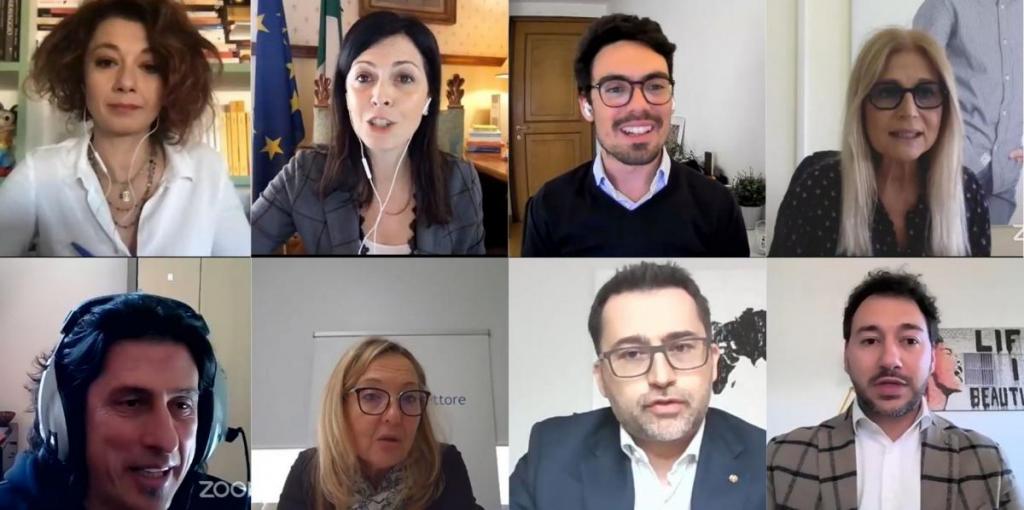
“Now that we live in the digital world, we must understand its rules, spaces and pace. The idea that a new learning environment, such as the digital one, can be integrated with a proximate experience, must lead to an improvement in education. The union between physical and digital spaces, between proximate and distance or digital learning, are worlds that interact and must be increasingly integrated. Even schools must learn to manage these dynamics and improve education for digital citizenship, so that our youth learn to be responsible citizens e inhabit the digital world,” explained Barbara Floridia, Undersecretary of State to the Ministry of Education.
“It’s not enough to just be present on digital platforms. We need to know how to experience them conscientiously. At Binario F, we have trained 100,000 people over three years, because digital tools are an opportunity for growth and inclusion. Thanks to digital tools, we will overcome the traditional physical and geographical barriers that limit us and reach out to everyone,” pointed out Angelo Mazzetti, Head of Public Policy, Facebook Italy, Cyprus, Malta and Greece.
“Economic challenge is also social and cultural. The health emergency must represent an opportunity for collective review and reconstruction. We also need to change the way in which we work. Digital transformation will be the key to development only if we make it truly participative and inclusive,” added Mirta Michilli, Director General of the Fondazione Mondo Digitale.
According to Massimo Castelli, National Coordinator of the ANCI small councils, “In the analogue world we are used to defending constitutional rights: school, health and work. Now, we must add access to digital tools amongst these rights. This would really be a giant step for our Constitution.”
“The pandemic was a great accelerator of digital tools, both in terms of opportunities and limits,” underlines Claudia Fiaschi, Spokesperson for the Third Sector Forum. “Our first challenge is digital inequality and inclusion of the most disadvantaged communities. The second is to manage associative life through digital tools. And this is no easy challenge considering that participation is the basis of the third sector. Our third challenge concerns organisation: how to organise welfare services, how to integrate digital ingredients in the digital transformation of communities and develop alliances. We can never win alone.”
Andrea Colzani, National President of the Young Entrepreneurs Section of Confcommercio, distinguished between the “short and the medium-term period, between overcoming the emergency and intercepting the recovery. Digital skills are a safe haven for enterprises, even the most digital. Think about restaurants and delivery. Then, there’s the long-term period, when we will have to consider digital skills as a must, not as an extra. Digital tools will need to be integrated with the other challenges of our century: green, sustainability and health. Another distinction must be made amongst sectors, differentiating between long-standing boutiques and large retail. Digital skills are proportionally more important for traditional enterprises. Not only will digital tools save us, but any technical course should be accompanied by a cultural framework that allows individuals to blossom at 360 degrees.”
“600,000 enterprises, 40,000 young digital craftsmen. Business models were already changing, but now everything has been accelerated.” Marco Vicentini, National President of the CNA Young Entrepreneurs, underlines how “lifelong learning is fundamental. Many enterprises need a new generation of human resources. They require education, information and opportunity for the young to participate actively even in smaller enterprises in the digital transformation.”
At the end of the plenary session, the representative of public and private agencies, citizens, enterprises and third sector organisations moved to three virtual rooms to share good practices and identify the challenges and priorities on which to act. The project will continue throughout 2021 with a series of interactive formats and free training events, from labs for SMEs to explore the potential of digital tools and innovative solutions for communications, on-line sales and aperture to new markets, as well as the creation of local mini task forces on common issues and local emergencies, in order to cooperatively identify proposals and solutions.
The objective of Vagone FMD. From 01 to 100 is to create an inclusive, scalable and replicable, community of phyrtual (virtual and physical) practice that can face the crisis and all transformative challenges through universal participation. Moreover, we need to pay particular attention on-line to youth, their future and the most fragile users, those who have lost their jobs and need to rapidly acquire new skills for the job market, or elders who are often excluded from a full participation in social life.
